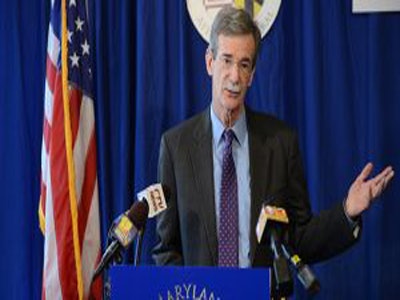Seventeen states and the District of Columbia sued U.S. Secretary of Education Betsy DeVos Tuesday for what they allege is the “unlawful” delay of the gainful employment rule meant to stop predatory practices by the for-profit college industry.
“The Department of Education is again eliminating crucial protections for student borrowers,” said Maryland Attorney General Brian E. Frosh, who is leading the coalition of states and D.C. in the lawsuit, which was filed in the U.S. District Court for the District of Columbia.
 Brian E. Frosh
Brian E. Frosh“Students seek higher education degrees to get better, higher paying jobs,” Frosh said. “When predatory institutions fail to deliver the education and training they promise, students are saddled with burdensome debt, and their employment prospects are not improved.”
The 37-page complaint asks the court to declare as unlawful the delay notices that DeVos issued earlier this year on the enforcement of gainful employment; to vacate the delay notices and order that the gainful employment rule be “enforced in its entirety.”
The lawsuit opens up yet another litigious chapter for a rule that has spurred litigation from its start during the administration of President Barack Obama, when the for-profit college sector sued to block its implementation.
Antoinette Flores, a senior policy analyst of postsecondary education policy at the Center for American Progress, said the lawsuit is a “welcome” one.
“The gainful employment rule is a crucial measure for holding career training programs accountable so they cannot receive substantial sums of taxpayer money without producing a meaningful return,” Flores said. “If this regulation goes away, career training programs and schools could go back to ripping off students through low-quality programs and some will continue to engage in deliberate predatory marketing to low-income people and veterans.”
Elizabeth Hill, press secretary for the US Department of Education, dismissed the lawsuit filed Tuesday as “just the latest in a string of frivolous lawsuits filed by Democratic Attorneys General who are only seeking to score quick political points.”
“While this Administration, and Secretary DeVos in particular, continue work to replace this broken rule with one that actually protects students, these legal stunts do nothing more than divert time and resources away from that effort,” Hill said in a prepared statement sent to Diverse.
U.S. Senator Dick Durbin, D-Illinois, offered a different take after the lawsuit was filed, noting that DeVos “admitted in a response to my written question that she had no intention of enforcing the gainful employment rule.”
“Instead, she continues to side with a for-profit college industry that enrolls nine percent of all post-secondary students, but takes in 17 percent of all federal student aid and accounts for 33 percent of all federal student loan defaults,” Durbin said. “During her tenure, Secretary DeVos has orchestrated a corporate takeover of the Department of Education by for-profit colleges that puts students and taxpayers at great risk.”
The Education Department announced in August that it would delay by six months — for the second time this year — the deadline for programs to file an “alternate earnings appeal” to avoid sanctions under the gainful employment rule. The deadline has been moved to Feb. 1, 2018.
The gainful employment regulation is designed to prevent students from leaving programs with too much debt and not enough earnings to pay it off. It applies to most for-profit programs and certificate programs at private non-profit and public institutions. The Department of Education is currently seeking to rewrite the regulation.
Jamaal Abdul-Alim can be reached at [email protected] or you can follow him on Twitter @dcwriter360.


















